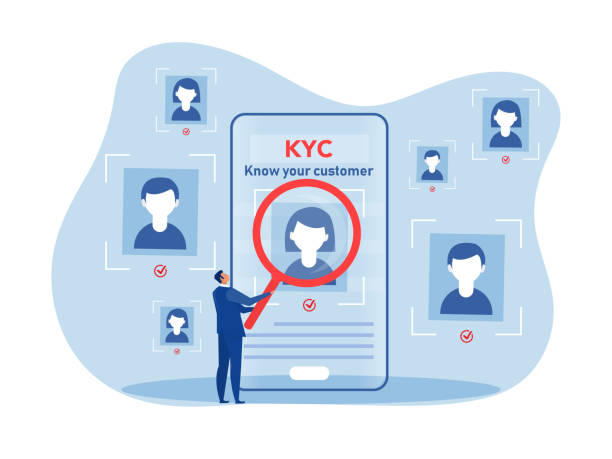Fraud transaction tracking is a critical issue of danger management for agencies, monetary establishments, and organizations. By implementing sturdy fraud transaction monitoring practices, organizations can detect and save you fraudulent sports, defend their assets, and hold the accept as true with in their clients and stakeholders. This article will delve into the significance of transaction monitoring and explore key components including transaction processing systems, tracking transactions in Know Your Customer (KYC) procedures, and enterprise transaction tracking.
Different Types of Fraud During Transactions
Preventing those frauds involves enforcing robust safety features which includes two-issue authentication, encryption, and normal transaction tracking. Educating individuals about the potential risks and selling cognizance also can assist mitigate the impact of these scams. Various forms of fraud can arise at some stage in transactions, affecting both groups and individuals. Here are some commonplace varieties of fraud which could arise at some stage in transactions:
1. Credit Card Fraud
This is using credit card facts without authorization to make cheating purchases. Fraudsters can reap card info through the use of hacking, skimming, or phishing strategies.
2. Identity Theft
To impersonate someone, fraudsters take private information like social protection numbers, passwords, or financial information. They will then use this facts to open debts or commit fraudulent activities within the sufferer’s name.
3. Online Payment Fraud
With the rise of e-commerce, fraudsters are exploiting weaknesses in on-line price structures. They might also use stolen credit card statistics, manage charge gateways, or use phishing scams to fraudulently reap items or services with out paying.
4. Account takeover
In account takeover, fraudsters benefit unauthorized get admission to to a user’s account by stealing credentials or exploiting security vulnerabilities. They can then manage transactions, make unauthorized transfers, or even drain the account.
5. Investment Scams
Scammers can trap individuals into fraudulent funding schemes promising excessive returns. They may additionally use Ponzi schemes, pyramid schemes, or faux investment opportunities to steal cash from unsuspecting sufferers.
6. Phishing
Phishing is the use of phony emails or websites to benefit personal statistics, which includes usernames, passwords, or credit card numbers. It facilitates the processing and recording of transactions in actual time. TPS captures and stores transactional facts, inclusive of purchase orders, payments, and account activities. Through TPS, corporations can monitor transactions as they arise, permitting for immediate identification of suspicious or fraudulent activities. TPS additionally enables agencies to generate reviews, analyze information, and set up styles or anomalies which could indicate fraudulent conduct.
Monitoring of Transactions in the KYC Process
Know Your Customer (KYC) is a vital procedure hired through groups to verify the identity in their clients and investigate their threat profiles. Transaction tracking plays a critical role in KYC by means of scrutinizing customer transactions to discover any suspicious styles or activities. This includes tracking the frequency, extent, and nature of transactions and cross-referencing them against patron profiles and historic information. By tracking transactions in KYC, agencies can pick out ability red flags, which include unexpected huge transactions, uncommon payment patterns, or transactions involving high-hazard jurisdictions.
Transaction Screening
Transaction screening entails systematically inspecting transactions towards predetermined lists or databases to perceive ability dangers or violations. Watchlists of known fraudsters, Politically Exposed Peoples (PEPs), or the ones connected to sanctioned entities may be protected on these lists, in addition to reviewing transactions for compliance with organizational policies, legal duties, and industry requirements. Advanced technologies, such as synthetic intelligence and system gaining knowledge of, are frequently hired to automate transaction screening approaches and decorate the accuracy and efficiency of detecting suspicious activities. By undertaking thorough transaction screening, companies can right away flag and look into any transactions that boost concerns, mitigating the risk of fraud and non-compliance.
Business Transaction Monitoring
Business transaction monitoring contains a holistic technique to monitoring transactions across numerous business functions and approaches. It includes studying transactional statistics from multiple resources, which include sales, procurement, stock control, and monetary transactions. By consolidating and reading this facts, agencies can perceive ability anomalies or fraudulent sports which can arise by means of manipulating distinct business methods. Business transaction monitoring offers a complete view of the organisation’s economic fitness and helps come across internal fraud, embezzlement, or collusion among employees. Additionally, it makes it possible for businesses to identify operational waste, streamline methods, and beautify basic performance.
Conclusion
Fraud transaction tracking is vital for organizations to protect their operations, assets, and popularity. Businesses can locate and prevent fraudulent sports by means of leveraging transaction processing systems, tracking transactions in KYC processes, undertaking thorough transaction screening, and implementing complete enterprise transaction monitoring. These practices contribute to maintaining compliance with regulatory requirements, protective consumer statistics, and fostering stakeholder agree with. Embracing sturdy fraud transaction tracking measures is critical for corporations to live in advance of evolving fraud strategies, mitigate risks, and ensure a steady and transparent business environment.

